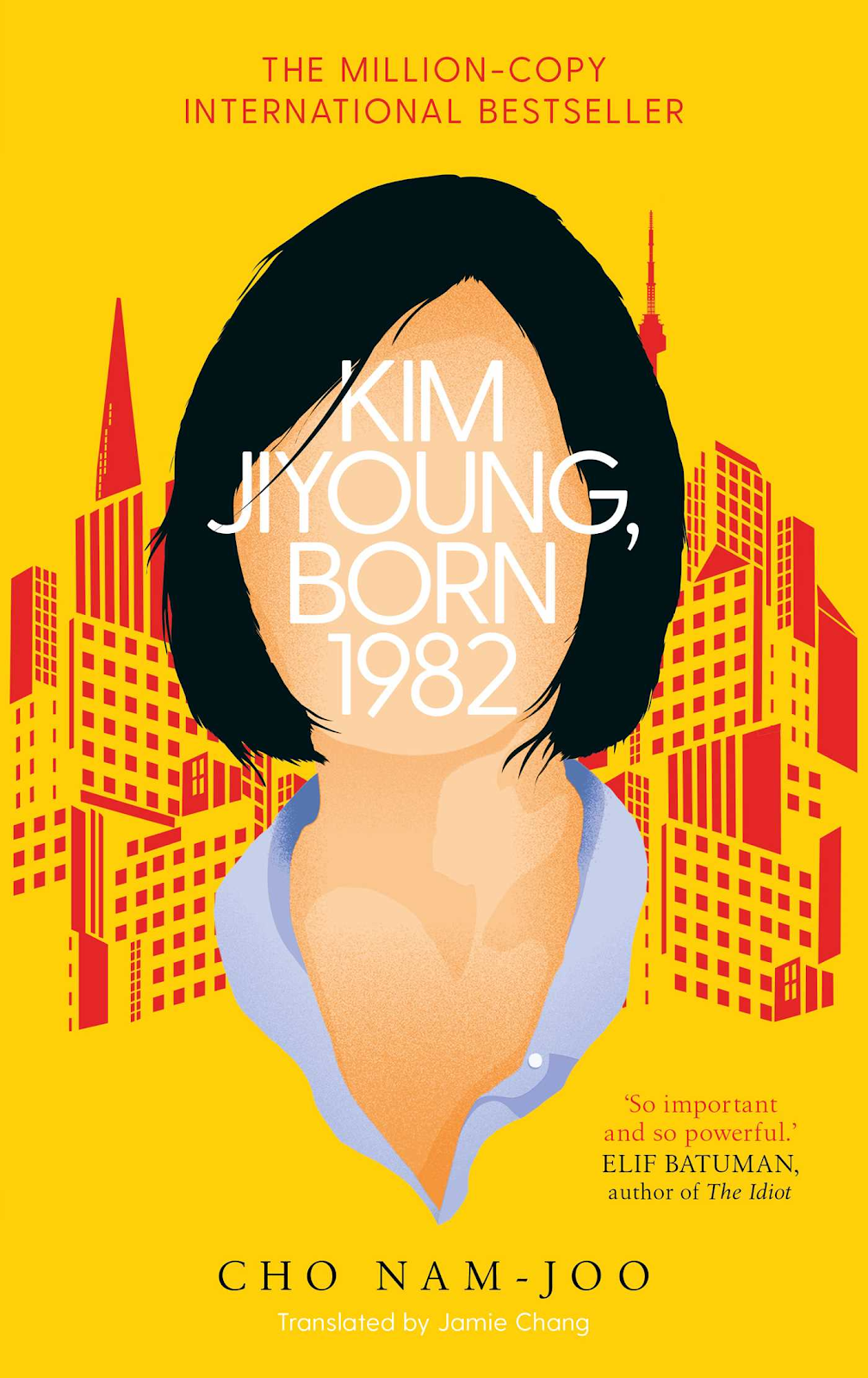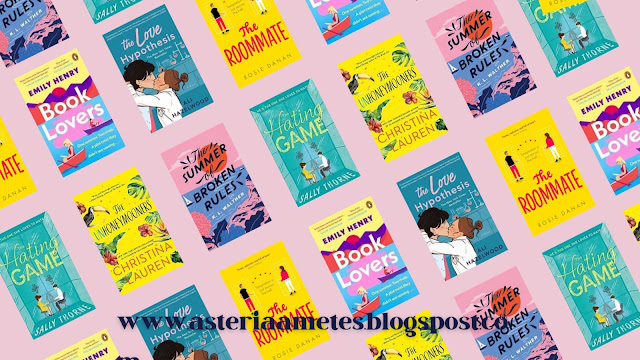BOOKS BY ASIAN AUTHORS
I
discovered my love for Asian books after reading the novel by Sohn Won-Pyung
called Almond which was recommended by RM from BTS. This blog has 10 Asian
books that I love.
In this blog, you will find novels by Asian authors from all genres. Although I have not read every single one of these novels, I can still ensure that you will enjoy reading them. Hope you find the novel you would love you read.
Here is a list of novels that I will talk about in this blog:
(Feel free to skip to the novel you like)
1. CONVENIENCE STORE WOMEN
2. KIM JIYOUNG BORN 1982
3. THE VEGETARIAN
4. KAFKA ON THE SHORE
5. AN EMBER IN THE
ASHES
6. MEMORY POLICE
7. I HAVE THE RIGHT TO
DESTROY MYSELF.
8. SHE WHO BECAME THE
SUN
9. MALGUDI DAYS
10. PACHINKO
 1. CONVENIENCE STORE WOMEN
1. CONVENIENCE STORE WOMEN
BY Sayaka Murata, Ginny Tapley Takemori (Translator)
This novel follows a character
name Keioko Fufukura who always had difficulty socializing but when she turned
eighteen and started working at a convenience store, things changed, she found
it easy to interact with customers. She has been working at that store for
eighteen, and she has been satisfied with her job. However, her family and
people around her don`t think so, they constantly pressure her to get married
and find a better job.
I had a great time reading this
book. First of all, the protagonist has a different perspective of the world
from mine, which intrigued me. I’m an ambitious person and I always want to do
something more. So, it was quite refreshing to read about a person who has a
completely different thinking process and still finds similarities among us.
BY
Cho Nam-ju
One of the most notable novels of the year,
hailed by both critics and K-pop stars alike, Kim Jiyoung, Born 1982 follows
one woman’s psychic deterioration in the face of rampant misogyny. In a tidy
apartment on the outskirts of Seoul, millennial “everywoman” Kim Jiyoung spends
her days caring for her infant daughter. But strange symptoms appear: Jiyoung
begins to impersonate the voices of other women, dead and alive. As she plunges
deeper into this psychosis, her concerned husband sends her to a psychiatrist.
Jiyoung narrates her story to this doctor—from her birth to parents who
expected a son to elementary school teachers who policed girls’ outfits to male
co-workers who installed hidden cameras in women’s restrooms. But can her
psychiatrist cure her, or even discover what truly ails her?
The main reason that made me pick this book was
that it was recommended by RM of BTS and it was amazing. You will find yourself
weeping and infuriated at the same time.
This novel by Cho Nam-ju shows the experiences
of a common woman at school, work, and with family and hits the right spot.
And for those who are interested, there is a Korean movie based on this novel. You can check it out. It’s called Kim Ji-young: Born in 1982
BY Han Kang
Yeong-hye a homemaker suddenly decided to become vegetarian after a series
of nightmares involving animal slaughtering started to torment her. But it was
not just that, she also started to exhibit strange behavior. In a country where
societal mores are strictly obeyed, Yeong-hye's decision to embrace a more
“plant-like” existence is a shocking act of subversion. And as her passive
rebellion manifests in ever more extreme and frightening forms, scandal, abuse,
and estrangement begin to send Yeong-hye spiraling deep into the spaces of her
fantasy. In a complete metamorphosis of both mind and body, her now dangerous
endeavor will take Yeong-hye—impossibly, ecstatically, tragically—far from her
once-known self altogether.
It wouldn’t be wrong to say that this “International Booker prize”
nominated book is a piece of Art. As it explores the conflict between our two
selves: one greedy, primitive; the other accountable to the family and society.
It is told from three different perspectives; one of her family, another of her
brother-in-law, and lastly from the manager of a cosmetic store.
By Haruki Murakami
Kafka on the Shore, a tour de force of
metaphysical reality, is powered by two remarkable characters: a teenage boy,
Kafka Tamura, who runs away from home either to escape a gruesome oedipal
prophecy or to search for his long-missing mother and sister; and an aging
simpleton called Nakata, who never recovered from a wartime affliction and now
is drawn toward Kafka for reasons that, like the most basic activities of daily
life, he cannot fathom. Their odyssey, as mysterious to them as it is to us, is
enriched throughout by vivid accomplices and mesmerizing events. Cats and
people carry on conversations, a ghostlike pimp employs a Hegel-quoting
prostitute, a forest harbors soldiers unaged since World War II, and rainstorms
of fish (and worse) fall from the sky. There is a brutal murder, with the
identity of both victim and perpetrator a riddle—yet this, along with
everything else, is eventually answered, just as the entwined destinies of
Kafka and Nakata are gradually revealed, with one escaping his fate entirely
and the other given a fresh start on his own.
If you’re talking about books by Asian authors
and not mentioning a book by Murakami, then I consider that blog incomplete.
Kafka
On the Shore Quotes.
1. “If
you remember me, then I don’t care if everyone else forgets.”
2. “Memories are what warm you up from the inside. But they’re also what tear you apart.”
BY Sabaa Tahir
Laia is a slave. Elias
is a soldier. Neither is free.
Ember in the
ashes Follows a girl called Laia, whose brother has been arrested for treason,
and her family has been killed. She decided to rescue her brother. For that,
she made a deal with the rebels, who promised to rescue her brother if she
risked her life to spy for them from within the empire’s greatest military
academy. Laia disguises herself as a slave of the military school’s commandant,
known for her ruthless, abusive, and tormenting nature.
There, Laia meets Elias,
the school’s finest soldier—and secretly, it’s most unwilling. Elias wants only
to be free of the tyranny he’s being trained to enforce. He and Laia will soon
realize that their destinies are intertwined—and that their choices will change
the fate of the Empire itself.
This dark fantasy will take you on a wild journey.
BY Yoka Ogawa, Stephen Snyder (Translator)
This dystopian novel is
set on an unnamed island on an unnamed coast, where objects disappear
physically as well as from people’s memories; like ribbons, roses, birds, calendars,
etc. Most of the islanders are not aware of this, they do feel that something
is wrong but can’t put their finger on that. However, there are few imbued with
the power to recall lost objects. They live under the consent fear of the draconian
Memory Police, who ensure that nobody remembers the disappeared object.
Our unnamed protagonist
who is a novelist found out that her editor can remember lost things so to
protect him from the memory police hides him. As fear and
loss close in around them, they cling to her writing as the last way of
preserving the past.
A surreal, provocative fable about the power of memory and the trauma of
loss, The Memory Police is a stunning new work from one of the
most exciting contemporary authors writing in any language.

BY Kim Young-ha
This
novella is set in mid-90s Seoul, told from the perspective of a shadowy man who
suggests suicide to his clients. C and K are two brothers who are in love with the
same woman “Judith” who is a client of this man.
This
story is about a society where death appears as a desirable option and also
about the people who want to keep living.
BY Shelley Parker-Chan
This historical fiction novel
reimagines the rise to power of the Ming Dynasty’s founder emperor. In an
unknown village in china, two siblings were fated, a son of greatness and a daughter
of nothing. After her family died in a bandit attack, the daughter took her brother’s
identity to Enter a monastery as a young male novice. There, propelled by her
burning desire to survive, Zhu learns she is capable of doing whatever it takes,
no matter how callous, to stay hidden from her fate.
BY R. K. Narayan
This book is a collection of
short stories by an Indian author set in a fictional Indian village named “Magudi”.
Stories revolve around the residents of the village. This novel full of colors would
be a volte-face for people who are not fond of short stories.
R. K. Narayan the author describes how in India “the writer has only to look out of the window to pick up a character and thereby a story.” Composed of powerful, magical portraits of all kinds of people, and comprising stories written over almost forty years, Malgudi Days presents Narayan’s imaginary city in full color, revealing the essence of India and the human experience.
BY Min Jin Lee
In
the early 1900s, teenaged Sunja, the adored daughter of a crippled fisherman,
falls for a wealthy stranger at the seashore near her home in Korea. He
promises her the world, but when she discovers she is pregnant — and that her
lover is married — she refuses to be bought. Instead, she accepts an offer of
marriage from a gentle, sickly minister passing through on his way to Japan.
But her decision to abandon her home, and reject her son's powerful father,
sets off a dramatic saga that will echo down through the generations.
This
story follows the four generations of a Korean family who immigrated to Japan
amidst Japanese colonization and political warfare. There is a k-drama based on
this novel, if anyone is interested, they can check it out. While researching
this book I came across the trailer for its drama. After watching it I became
more curious about this novel and it didn’t disappoint.











Thank you! :)
ReplyDelete